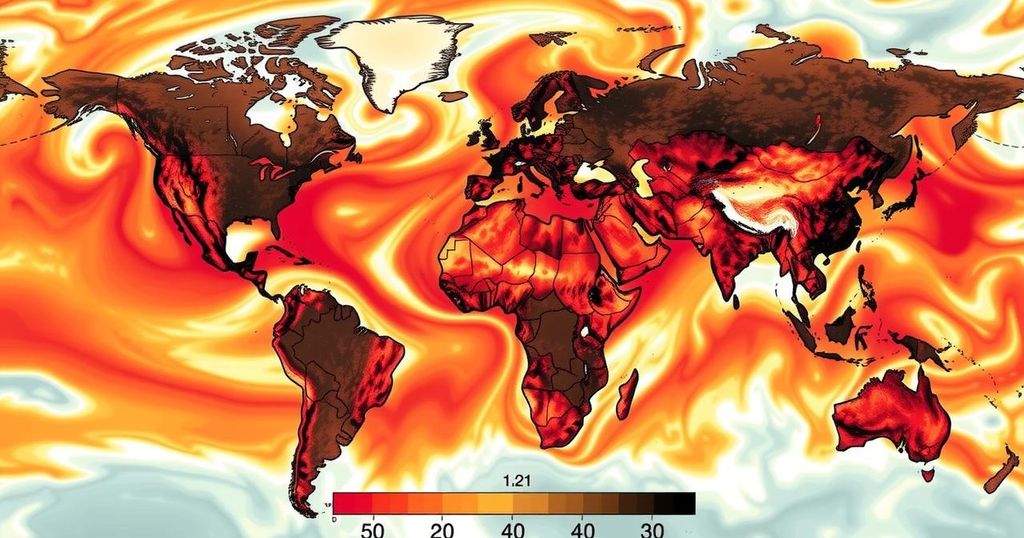The UN has reported that 2024 concludes a decade of unprecedented heat, marking the ten hottest years on record. In his New Year message, Secretary-General Antonio Guterres urged nations to reduce emissions significantly by 2025 to transition toward a renewable future. The WMO warned of rising greenhouse gas levels contributing to severe weather events and highlighted the necessity for international cooperation to address climate-related challenges.
The United Nations (UN) has declared that 2024 marks the end of a decade characterized by extreme heat, emphasizing the urgent need for climate action. In a New Year message, UN Secretary-General Antonio Guterres highlighted that the last ten years have witnessed the hottest temperatures on record, attributing this crisis to human activities. The World Meteorological Organization (WMO) is expected to confirm these findings in January as it releases official temperature data for the year. The WMO has raised alarms about escalating greenhouse gas emissions that exacerbate global warming and extreme weather events.
Mr. Guterres stated that the past ten years represent a “decade of deadly heat,” urging nations to redirect their approach to climate change. He insisted that in 2025, there must be significant reductions in emissions to ensure a sustainable future. Furthermore, WMO Secretary-General Celeste Saulo reiterated the impacts of rising temperatures, noting that every degree increase contributes to more severe climate extremes, including floods and deadly heat.
The WMO also referenced a recent report which indicated that climate change intensified 26 out of 29 extreme weather phenomena in 2024, resulting in thousands of fatalities and massive displacements. The report underlines the necessity for global cooperation to mitigate the adverse effects of climate change as the frequency and severity of extreme weather continue to escalate, which poses dire implications for communities worldwide.
The article addresses the alarming trends in climate change over the past decade, spotlighting 2024 as a significant year that underscores the urgency of the climate crisis. The UN and WMO’s assessments shine a light on the unprecedented global temperatures resulting from human activities, reinforcing the impact of greenhouse gas emissions on climate extremes. This context sets a critical background for understanding the importance of international climate policy and the collective responsibility of nations to combat the impending threats posed by climate change.
In conclusion, the UN has sounded a clarion call regarding the climatic crisis, emphasizing the need for a decisive transition towards sustainability. The acknowledgment that 2024 caps a devastating decade of heat underscores the urgency for immediate and coordinated action to reduce greenhouse gas emissions and mitigate extreme weather impacts. It is crucial for global leaders to collaborate in devising and implementing effective strategies to combat climate change and protect vulnerable communities worldwide.
Original Source: www.perspectivemedia.com






